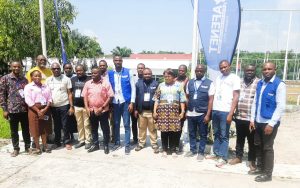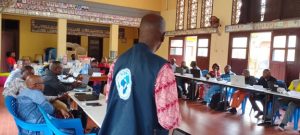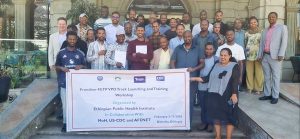Côte D’Ivoire Intermediate FETP Complete COVID-19 KAP study in Zoukougbeu District
-
by
AFENET
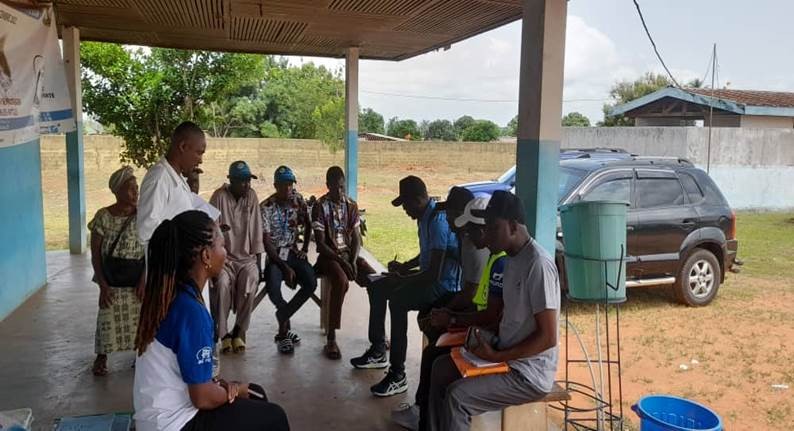
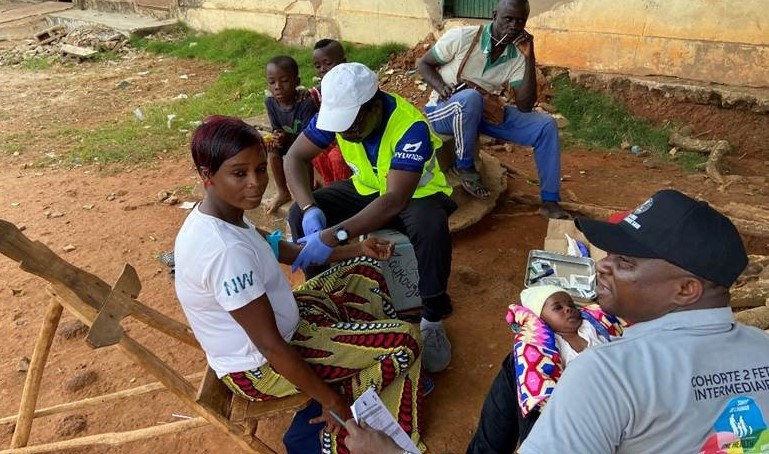
The Cote D’Ivoire Cohort 2 Intermediate FETP completed their group project on COVID-19 Knowledge, Attitude and Practice in a silent district of Zoukougbeu. The project which is part of the requirement of the 9-month training is aimed at examining the community’s knowledge, attitude, and practice towards COVID-19, including testing habits. It also examined the seroprevalence of COVID-19 in one of Côte d’Ivoire’s 113 districts of which 20 reported no cases by October 2022. The study is expected to provide explanations for the possible absence of COVID-19 cases reported from the district and estimate the level of infection that might have occurred if any.
Zoukougbeu district has a population of 125,468 inhabitants and is part of the Haut-Sassandra Region, in western Côte d’Ivoire. The project interviewed 399 non-vaccinated inhabitants who were 12 years of age and older, from 30 household clusters. The data collection both for the KAP and seroprevalence study was conducted by five teams, each comprised of three Intermediate FETP trainees, one Intermediate FETP mentor, and one laboratory technician from Institut Pasteur de Côte d’Ivoire (IPCI). Information was collected using a semi-structured and validated 50-item questionnaire. A total of 394 participants 54% of whom were females consented to the study giving a response rate of 99%.
The successful KAP data and blood sample collection highlighted the importance of regional and district-level engagement, most critically that of community health workers, to ensure community sensitization and acceptance. Despite considerable logistical challenges, we appreciate the strong collaboration between L’Institut National de Hygiene Publique (INHP), The African Field Epidemiology Network (AFENET), IPCI, Global Fund, and U.S. Centers for Disease Control and Prevention without which the study may not have been as successful. The blood samples are currently being processed, KAP data analyses have started, and a preliminary report is expected by mid-June.

